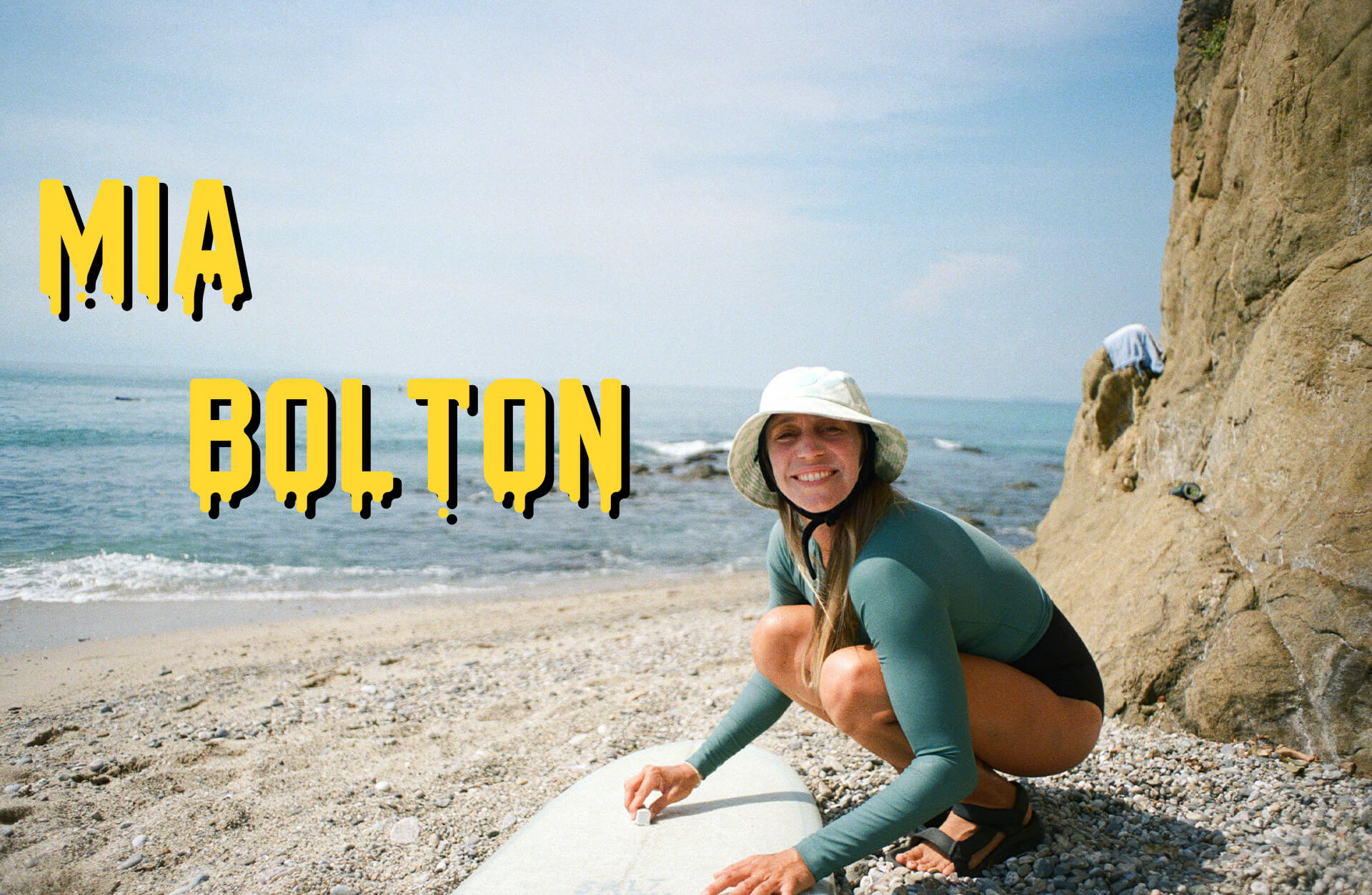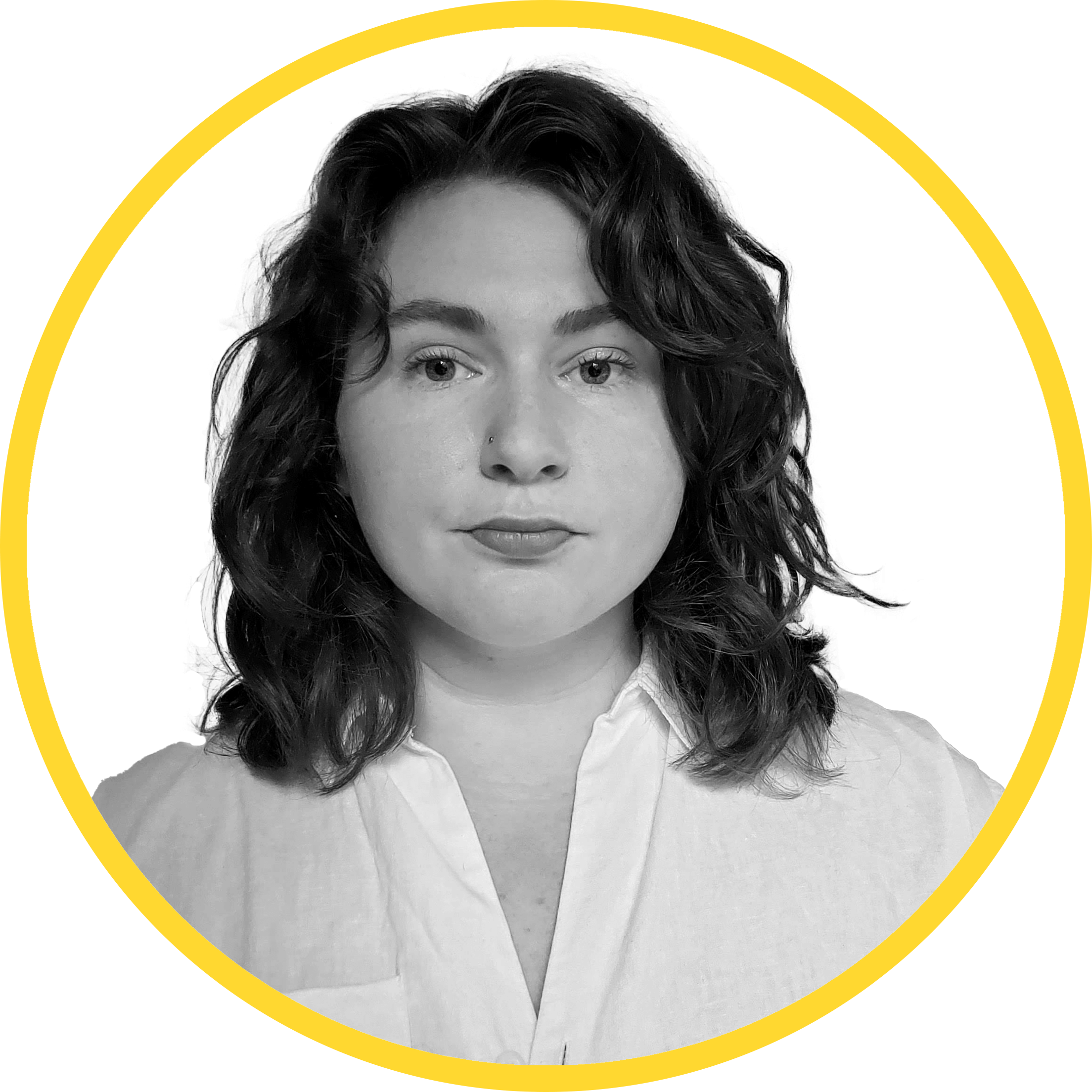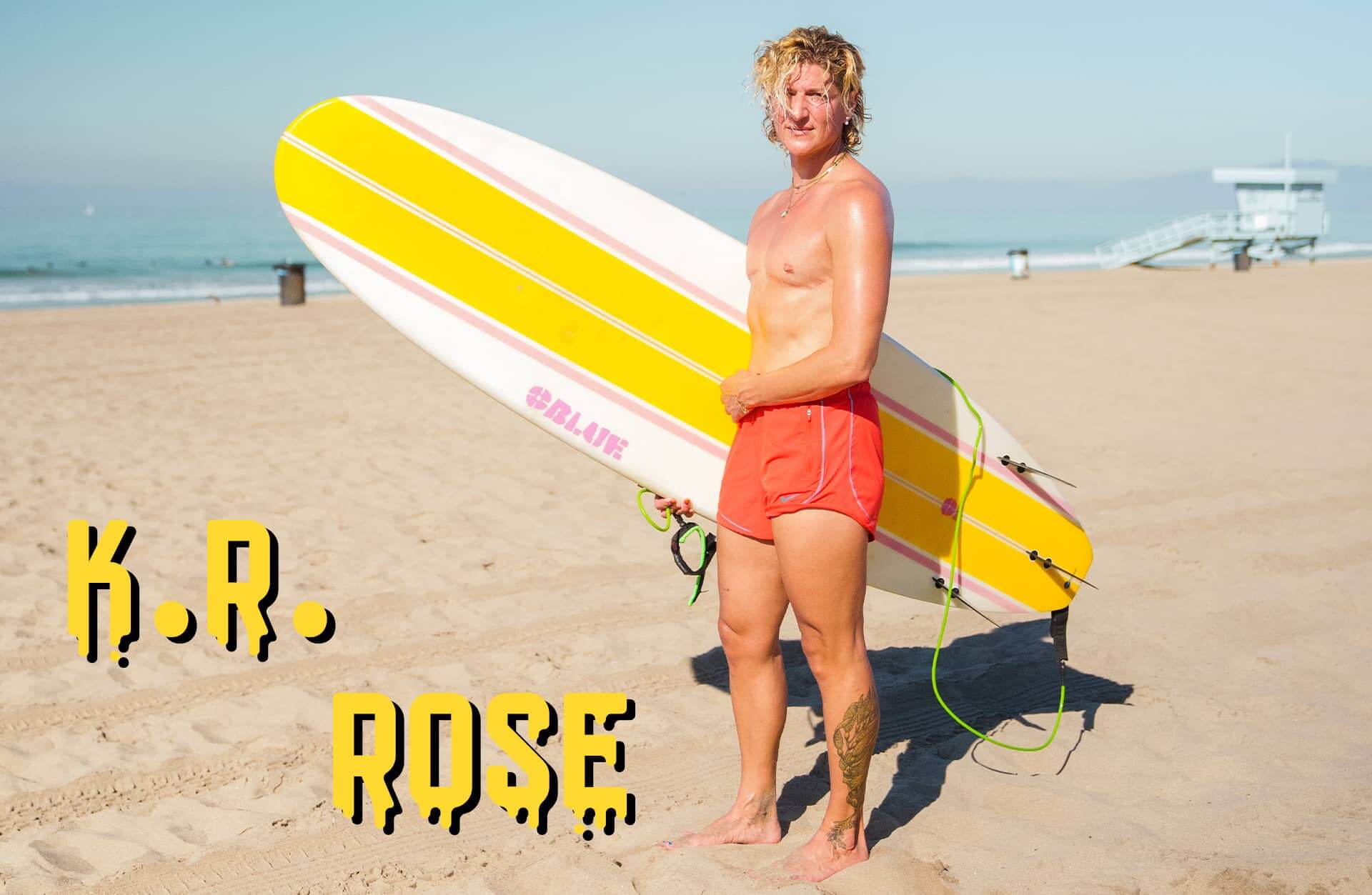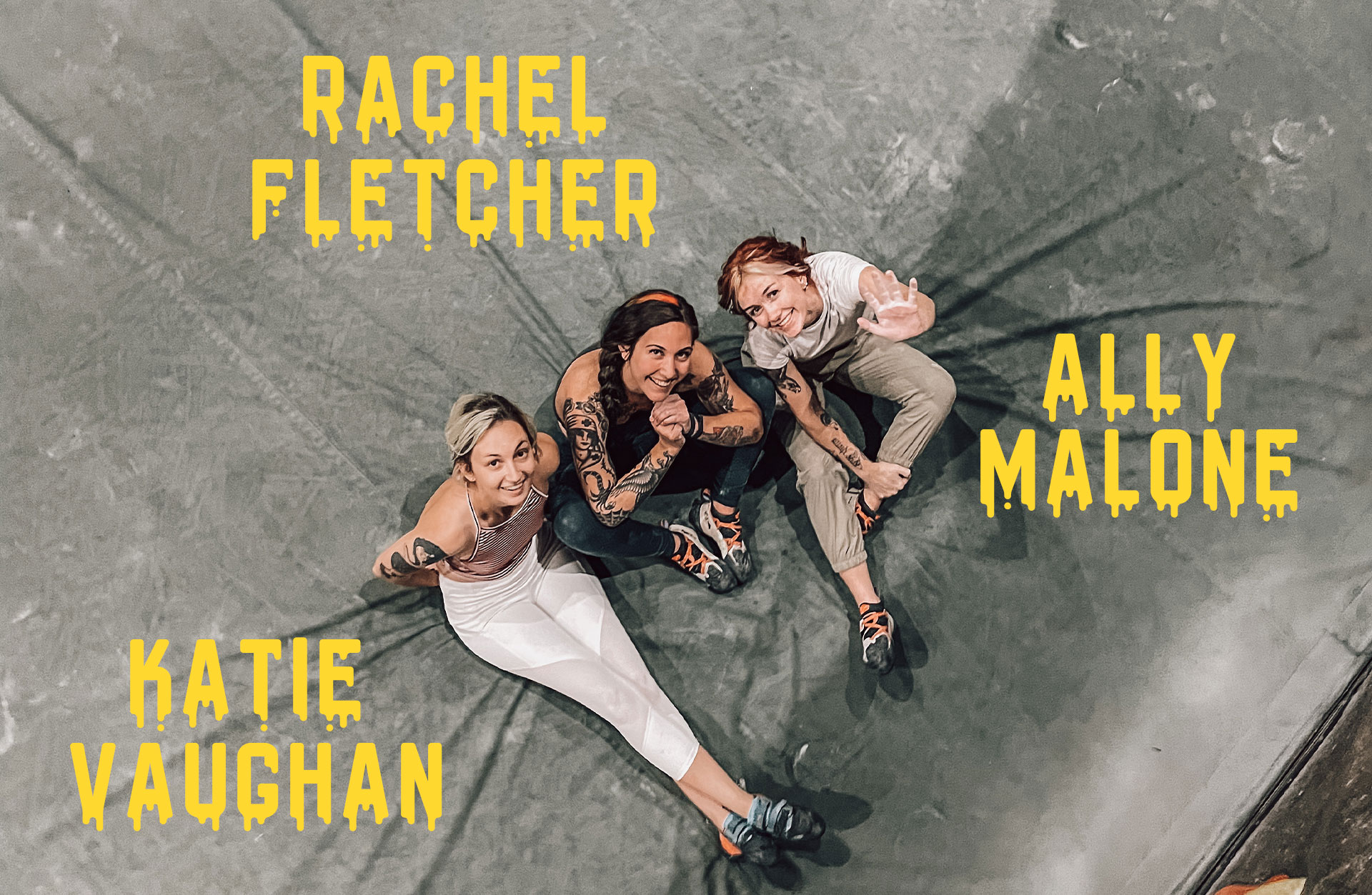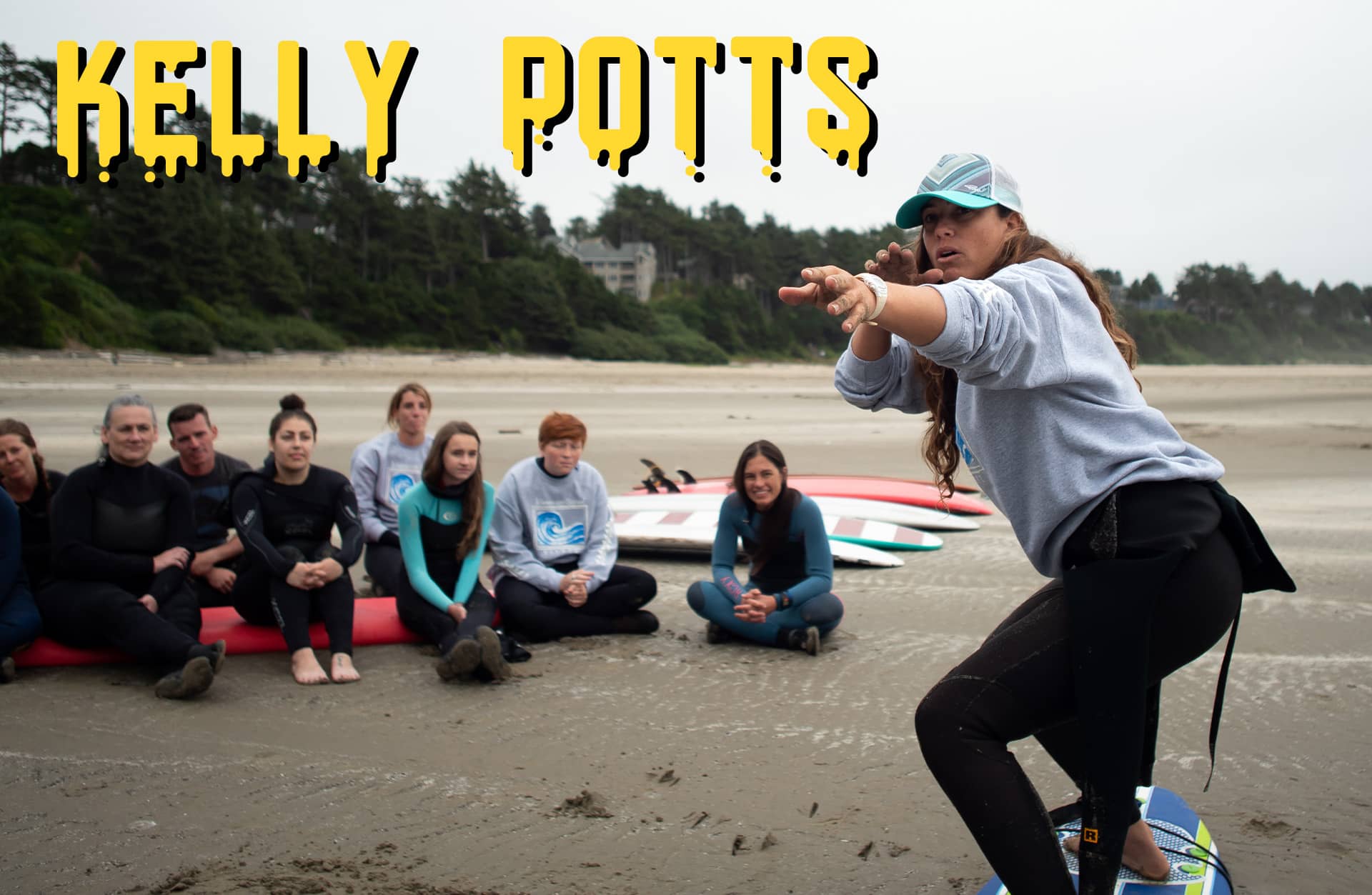SURF // 01 DEC 2023
SURF, SNAP, SHARE
Nestled three hours inland from the closest coast, in the small town of Columbia, Maryland, there once was a little room wallpapered with surf photos. It was the childhood bedroom of surfer, photographer, and storyteller Mia Bolton. “I became a little infatuated with surfing,” she laughed. “I was obsessed with it. All of the posters on my wall were cutouts from magazines. They were all of Kassia Meador and Belinda Bags. They were longboarders. [Their style,] it was never the big splashy carves or cutbacks. I think I was attracted to the grace and calm of [their surfing]. It seemed like such a beautiful connection with the water.”
Unfortunately obsession didn’t make the commute to the beach any shorter. So the young Bolton pursued other passions, turning her eye to the aperture of film photography. “It was the only class I took all the way through high school,” she said. “I loved the idea that you could capture a moment and then there was that delayed gratification of seeing it.”
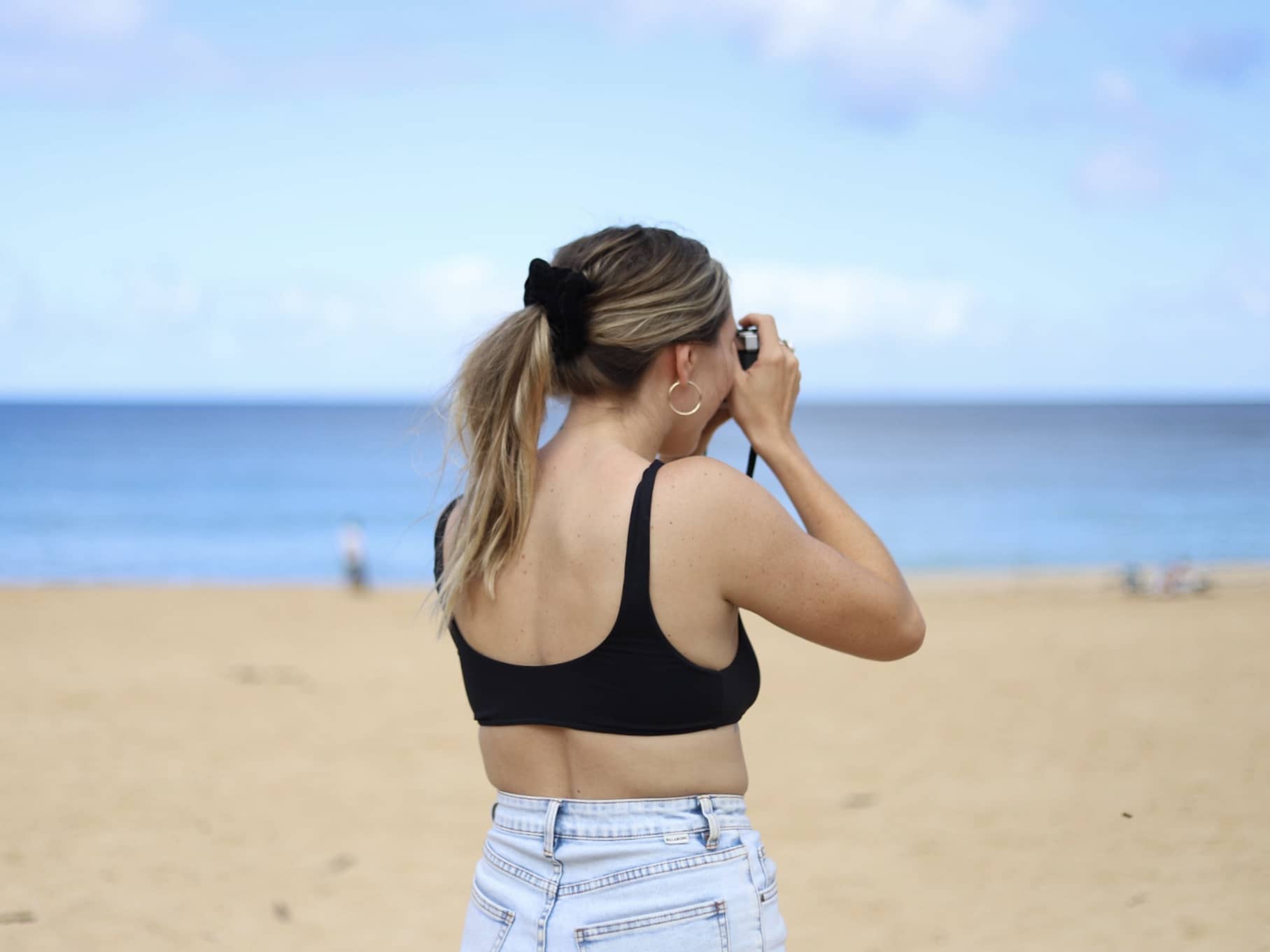
She continued, “I loved the dark room part of it too. The dark room was so peaceful. You walk into this circular door and it’s completely dark and your eyes have to adjust, and there’s just one red light bulb. You can play with the enlarger to create the image you want and play with how much light you give it. Then you actually develop [the photo] in the chemicals. Oh, I was obsessed. The whole process spoke to me, and the photos always came out with so much more feeling, texture, and emotion than digital.”
Encouraged by her teacher, Mr. Cisna, Bolton honed her skills. Upon entering university, she talked her way into the film photography class despite not being an art major. “Then after college, I started buying cameras and exploring other ways I could integrate film photography into my life,” she smiled. “I feel like everything in life is digitized, which makes something analog like film and all of its imperfections feel really refreshing.”
While pursuing her degree in communications at university and continuing her photography practice, a door was opened to Bolton’s childhood obsession. Surfing.
Butter Mag is a 100% reader supported publication. By subscribing to Butter’s Patreon for as little as 2$/month, you keep Butter churning, so that together we can create a more diverse outdoor sports community.
With her university’s surf club, Bolton tagged along on her first surf trip to the Outer Banks of North Carolina. She recalled, “I got on a foam board and rode the white water. [I was] with friends and so I’d ride whitewater and fall. Everyone was laughing, not taking it seriously. It was the perfect environment for me to learn in.”
Though she would occasionally join her friends in the surf club, or grab a board and do her best to catch waves while working as a lifeguard post-grad, it wasn’t until she moved to San Diego, California that Bolton decided to take surfing seriously. “That’s when I was like, I want to actually figure out how to surf. But I didn’t know anything about it, so I got a janky short board off Craigslist, without knowing that it was the hardest board I could have ever picked to learn on.” she smiled. “I think every surfer has this story where they bought a janky board off of Craigslist!”

Bolton spent two years learning through trial and error, or as she says, “beefing it”, on her short board. She finally decided to follow in the footsteps of her childhood surf heroes and made plans to purchase a longboard. She shared her plans with a customer while working her shift at the Quicksilver Roxy store and he brought up the suggestion of Bolton shaping her own board.
“He pointed me to this place where people could sign up for lessons and learn how to shape their own surfboards,” she explained. “It was really cool! I ended up making five or six boards there over the course of many years, the first being an 8’10” longboard. It had pink and purple resin swirls on the bottom with a single fin box and a lime green pin line on the deck . It was so bright and watermelony.”
She continued, “Making that board introduced me to a whole community of people who surfed, made surfboards, and went on surf trips. They’re some of my very best friends still.”
Bolton spent the next eight years building her community in San Diego and building her life on the West Coast. When she wasn’t surfing, she worked at Mixte Communications, a boutique social justice communications agency that supported grassroots leaders and organizations advocating for clean water, healthy communities, food accessibility, better transportation, affordable housing, and more.
Driven by passion, Bolton dedicated herself to her work. However, after eight years of charging full tilt she was drained. Burnt out, Bolton left the job that defined so much of her identity. This, in combination with coming out of a long term relationship left Bolton drowning in uncertainty.

“I lost my job, fell out of a relationship, and suddenly had a very blank slate. I was looking around, being like, where do I want to go? What do I want to do?”
As she figured out which direction to turn, Bolton looked to the world around her for inspiration. “ “I didn’t feel like I saw a lot of representation of women living happy, fulfilled lives in creative, abundant ways [that reflected a future I wanted for myself]. I saw a lot of people getting married, buying houses and having kids, but that wasn’t for me yet. There was still a lot coming together for me about who I was – realizing I was queer later in life, understanding my own heritage as a Jewish person, and trying to figure out what was next for me in alignment with my truest self and all my identities.”
“I ended up going on a four month road trip around the country to talk to women that I thought were living untraditional lives, looking for that inspiration,” she said. “It sounds fun, right? But at the time, I was devastated inside. I needed something to make me feel like myself, alive, inspired. I didn’t know how it would end up changing me, but I knew everything was going to be different after that.”
Traveling around the country, Bolton set up interviews with people who inspired her. Each person she met became a new muse. But she didn’t understand the broader impact her trove could have until she reached Portland, Oregon. “Someone I met told me that the stories that I was collecting needed to be shared beyond just me,” explained Bolton. “She said, ‘we don’t know each other. The people that you’re talking to, we need to see those people. We need to know who they are. That’s our community.’ So she was like, ‘you need to write a book.’ And I was like, okay. I walked away being like, what did I just agree to?”
Returning from her trip, Bolton had a new found focus. An understanding of what truly mattered to her. “It’s helping women tell their stories,” she smiled. “At first I thought I’m just the storyteller, the interviewer who would transcribe and share the stories. Then I started to think about how my photography also played a role in [capturing stories]. Then I started to think about how deeply meaningful life coaching was in my life and how it helped me understand myself better. Then I started to think about my own story as inspiring. It all just snowballed and came together in a beautiful and unpredictable way. I think my desire to highlight and share women’s stories all started with me understanding what I needed and wanted and then asking myself, how can I do this for other women? How can I do this for the queer community? For people who I feel like need to see more of themselves in the world.”
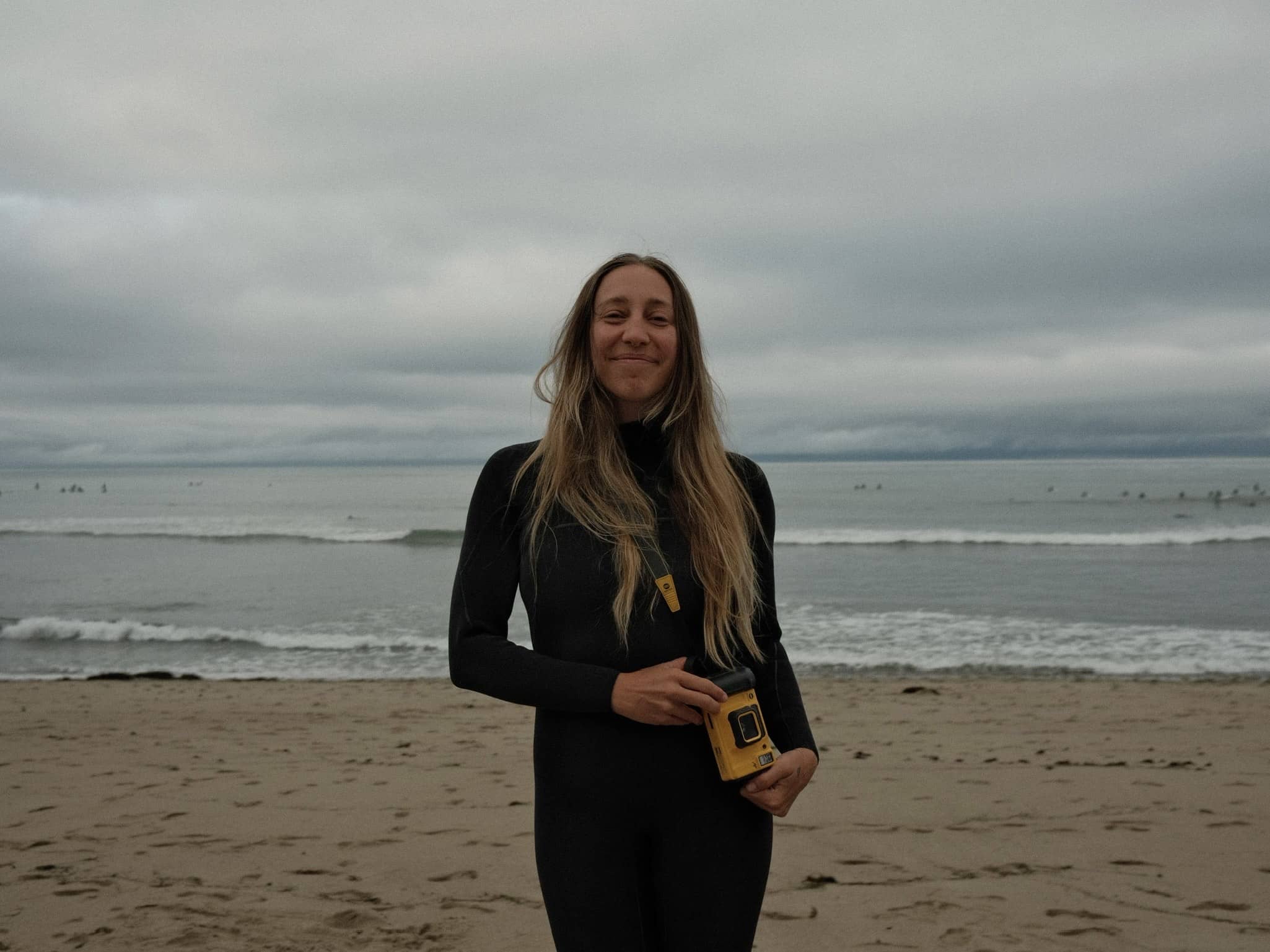
These questions have served as the guiding principles for Bolton’s work in photography and writing since. Naturally, she looked for those stories in her second home, the ocean. “I didn’t initially see the intersection of surfing and film photography. Once I discovered that there was such a thing as underwater film cameras, I realized that I had to try it,” she said. “There’s a huge parallel [between surfing and film photography where] you only get so many waves, only get so many shots, and no two are going to be alike. So you need to be present and really be intentional with your moment. It’s probably one of the things that keeps me drawn to both [activities]. [Plus] there’s an element of creativity to both as well. And fun.”
Years of surf media have endorsed an individualistic, competitive mindset within the community, making the image of the surfer one of solitude. While there are the occasional meditative moments on a wave, for Bolton, a majority of her time in the water is spent goofing around with friends. By sharing the sillier side of the sport, she hopes to make surfing less intimidating for women, BIPOC, and queer folks. “If we can show more images of people enjoying themselves, being welcoming and inclusive, the happy sides of all of us enjoying the ocean together, I just think that could be so powerful,” she smiled. “[Those] nuggets of connection, [such as] storytelling, art, and photography, those are the cornerstones to building community and feeling less alone.”
She smiled, “I think if more people saw that side of surfing, all the times that people truly just ate shit, including myself, and then got up and laughed about it. I think surfing would be more welcoming for everybody.”
Along with her photography, which has ranged from photos of friends to a series of postcards featuring poetry and photos from surfer Devon DeMint, Bolton has made good on her promise to put together a book of the stories she collected during her road-trip. “I’ve been working on this book for five years,” she laughed. “I am in the final editing stages. I think I’m on version 14 now, but as you know, it takes so much time to edit. I’m also being very intentional about getting the stories right because it’s not just my story I’m writing for my book. It’s someone’s else’s story and I want to know that they feel good about how it’s being shared.”
Enjoying this article? Consider subscribing to our Patreon for as little as 2$/month to ensure we can keep sharing more stories like this in the future!
“It’s very fulfilling, very rewarding, very time consuming. Put this in the piece,” she said. So here it is. “If you’re starting to write a book, I have tips and shortcuts, so message me. I can save you so much hurt. But it was a good learning opportunity. I wouldn’t do it any other way. It has definitely been a labor of love, that’s for sure.”
The underlying purpose of all of Bolton’s work, whether it’s writing, photography, or life coaching, is to help people feel less alone in the world. “Women, queer people, anyone who’s been left out. Sharing stories is one of the best ways that human beings can connect with each other despite differences and make each other feel less alone. It was really my whole purpose for the road trip, for surf photography, and life coaching. To help people understand that they’re not alone and that their story matters.”
She continued, “We think we’re alone a lot more than we [actually] are. The world has been designed to make us feel that way. We are so isolated and we’ve lost a lot of things that used to connect us, and it’s not our fault. It’s a lot of systemic things that we didn’t build but we are coexisting within. The more that we can take care of ourselves and come together, the more we can talk to each other and share stories and just listen, [the more] we’ll feel connected.”
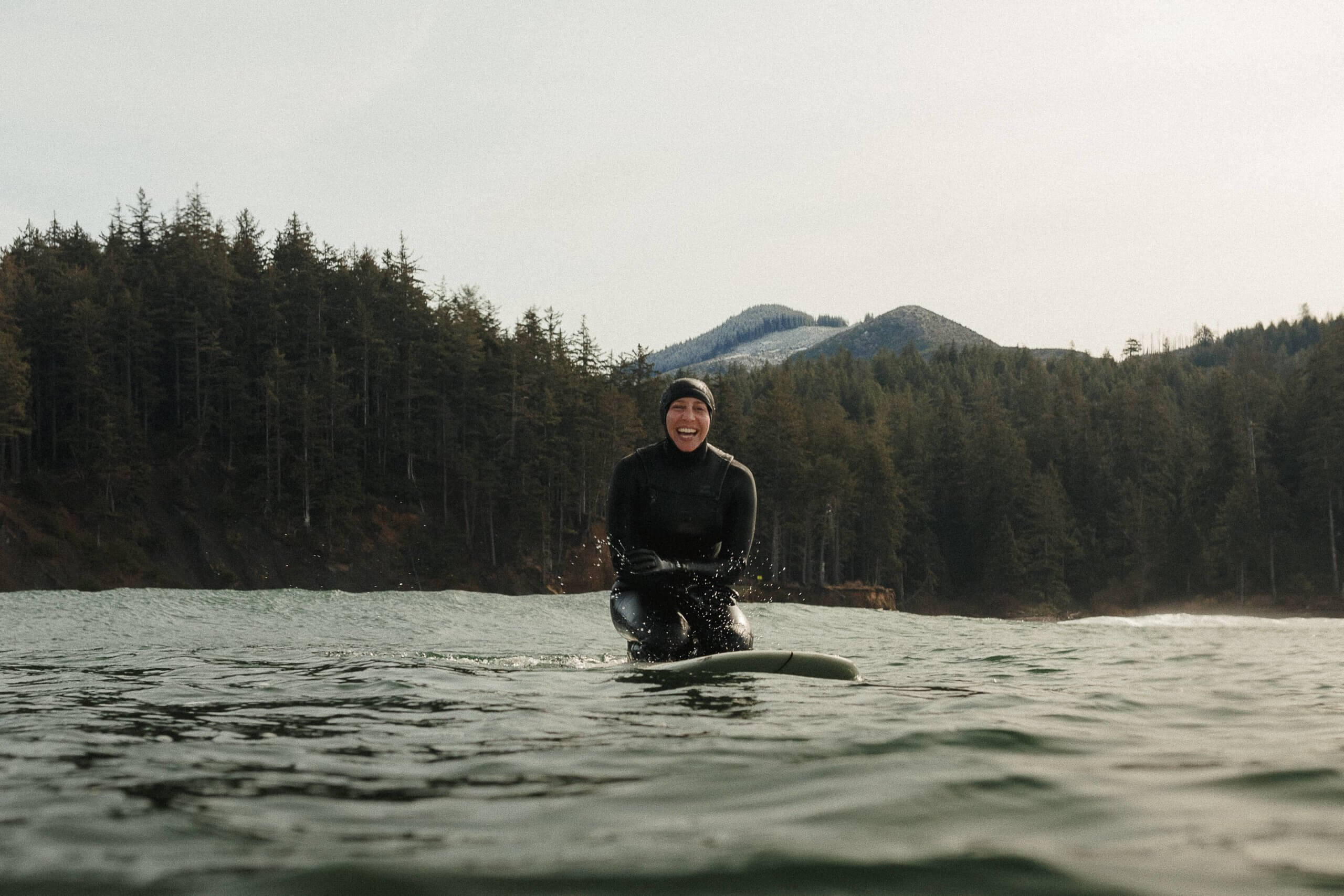
For Bolton, life has been a journey lit by the torch of curiosity. Photographing, surfing, and storytelling. At the start they were simply novelties that Bolton then turned into something more. “For me, it always starts with something I’m interested in, and then it sort of evolves as I want to keep doing it. Then I ask myself, how can I layer more purpose into this?”
How can she make people feel less lonely? That is the purpose Bolton carries with her, whether it’s at Mixte Communications, with her soon-to-be book, or out in the water giving the new person in the lineup a friendly hello. She explained, “If my work, my book, my photography, my coaching or just surfing with people can make others have that sense of – oh, maybe I’m not the only one, I guess that’s not just me. I guess I’m not alone – That would be the ultimate reward.”
